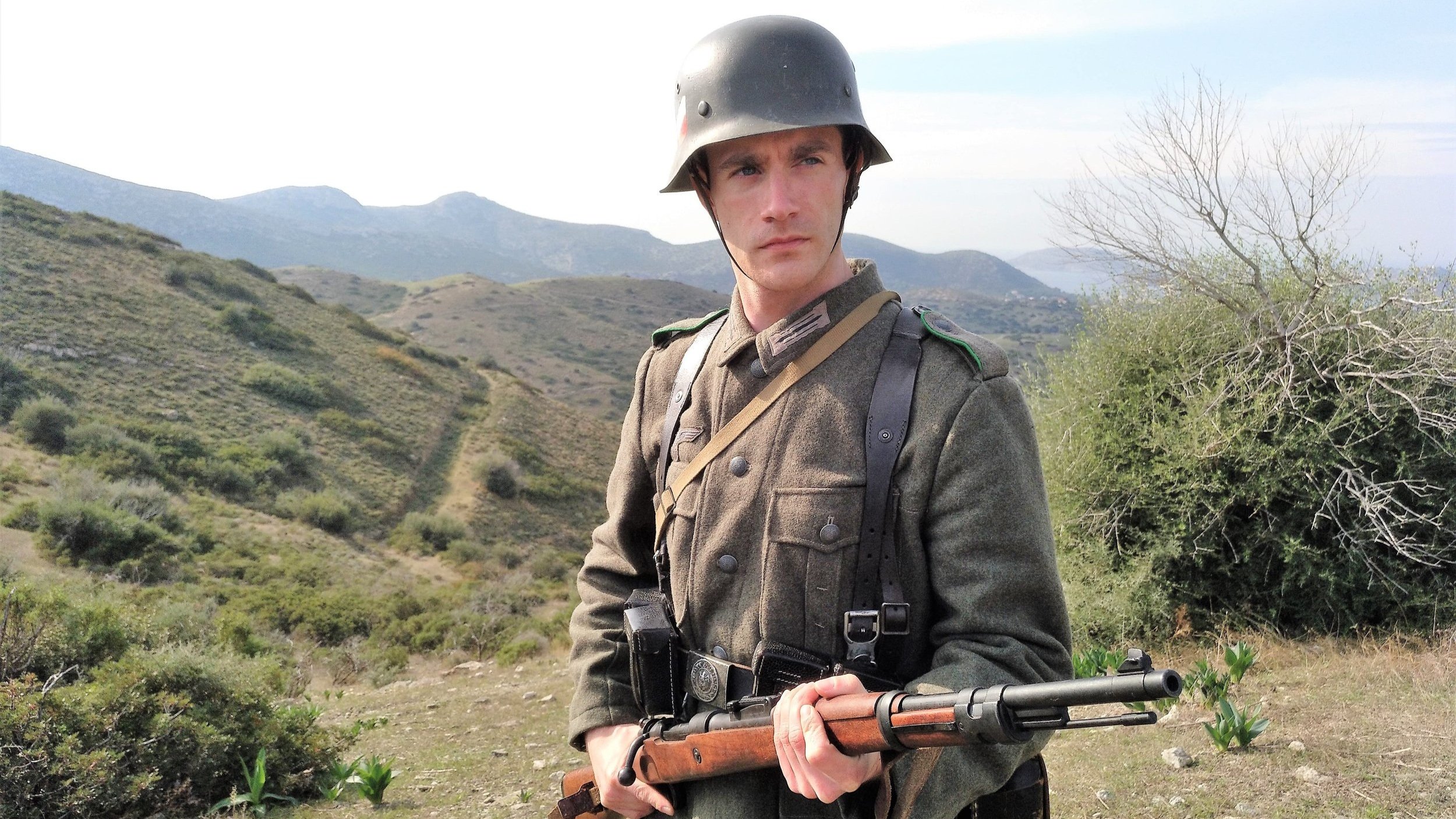Echoes of the Past
In his last film role, Max von Sydow plays the fictitious survivor of a real-life massacre carried out in 1943.
When making this film the Greek director Nicholas Dimitropoulos must have hoped that it would hit the headlines for being the first time that cinema had treated the subject of the massacre that took place in December 1943 in the Peloponnesian town of Kalavryta. As many as seven hundred died at the hands of German troops who, by killing civilians, were retaliating in the most intimidating way possible over the deaths of eighty of their number captured by local resistance fighters. Even now Greece is engaged in fresh claims for reparation by Germany for what happened almost eighty years ago. Dimitrios Katsantonis, the writer and co-producer of Echoes of the Past, has confirmed that the project was undertaken to keep the memory of the massacre alive – and not only in Greece. To do this he has invented a number of the characters seen here but uses them to portray the actual events.
When the film opened in Greece, the public flocked to see it but the two stories that appeared in the media in relation to the film were ones that had not been anticipated. First, there was the fact that just before its premiere Max von Sydow died, thus making this newsworthy as his last screen appearance. Playing the role of an aged author, Nikolas Andreou, who as a child of seven had been present on that fatal day in Kalavryta, von Sydow has top billing here. Having had an extensive career that ranged from his many Swedish films with Ingmar Bergman to appearances in major Hollywood films such as The Exorcist (1973), he is an actor powerfully implanted in the memories of many filmgoers. They may well want to see him in his final role, but in fact although Andreou is a major figure here it is his experiences as a child that take up most of the footage. Consequently, von Sydow has what is not far from being a cameo role and one with very little dialogue: he does stamp his presence on the film but can do no more than that.
The other headline story that appeared in relation to Echoes of the Past was concerned with the fact that as part of what we see it gives credence to the belief that an Austrian soldier unlocked a schoolhouse door and thereby helped women and children to escape, these people having been locked up in the building by the Germans prior to it being set alight. Claims regarding the truth of this have indeed been made, but many nevertheless regarded it as a myth. Among those who take this view is the Association of Victims of the Kalavryta Holocaust and they issued a lawsuit against the film's producers. But, whatever the concerns over this locally, it will hardly be of great significance to audiences elsewhere. What counts is that the film is at pains to show the full inhumanity of what was done while also inviting audience sympathy for someone humane enough to disobey rules in order to save others despite that being at fatal cost to himself. This Austrian is shown as the exception to the rule and not as a figure who in any way plays down the atrocity.
So, judged simply as a film, how well does it work? The answer is well enough on a certain level. It is patently no masterpiece as is apparent if you consider it alongside a Polish portrayal of another war-time massacre Andrzej Wajda’s Katyn (2007) and, while the Greek characters mainly speak their own language (much of the piece is subtitled), it feels unreal when Germans speak English when talking to fellow Germans. Indeed, the writing lacks real depth and the decision to intertwine a modern narrative with the recreation of the events of 1943 rarely justifies itself (the present day thread has Astrid Roos as a lawyer acting on behalf of the German government coming to Greece to consider the claim for reparations and meeting von Sydow’s Andreou in the process, but all this is pretty thin). However, the cast including Danae Skiadi as the mother of Nikolas and two youngsters, Maximos Livieratos and Tasos Karlis, play very competently and, despite the time switches that interrupt the narrative, the direction by Nicholas Dimitropoulos keeps things moving. I wouldn't claim too much for the film, but arguably the fact that confirms its value is that at the Thessaloniki Film Festival it won the Youth Award. The voters in this category are students in the city’s universities and the film's impact on them is evidence enough that Katsantonis has indeed written a film that is keeping alive the memory of Kalavryta and its horrors thus ensuring continued awareness and condemnation of such acts of inhumanity.
Original title: Kalavryta 1943.
MANSEL STIMPSON
Cast: Max von Sydow, Astrid Roos, Danae Skiadi, Nikolas Papagiannis, Maximos Livieratos, Tasos Karlis, Martin Laer, Tomas Arana, Yorgo Voyagis, Maria Aliferi, Philippe Katic-Arnauld des Lions, Alice Kruge.
Dir Nicholas Dimitropoulos, Pro Stelios Cotionis and Dimitrios Katsantonis, Screenplay Dimitrios Katsantonis, Ph Yorgos Rahmatoulin, Pro Des Rania Gerogianni, Ed Giannis Halkiadakis, Music Alexandros Sidiropoulos, Costumes Katerina Chalioti, Tasos Dimas and Sofia Kotsikou.
Foss Productions/Cosmote TV/Greek Film Center/Hellenic Radio & Television (ERT)-reel2reel Films.
99 mins. Greece. 2021. US Rel: 1 December 2021 on VOD and digital platforms. UK Rel: 21 February 2022 on digital platforms. No Cert.


